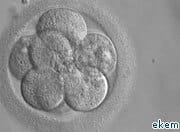Cells from aborted babies could controversially be used to treat Parkinson’s disease following new scientific research into the condition.
The contentious idea involves harvesting cells from aborted babies, and transplanting these into the brains of patients who are suffering from the disease.
However, the macabre treatment is likely to meet fierce opposition from pro-life campaigners.
Abortion
A spokesman for the Pro-Life Alliance has criticised the procedure, saying: “Any use of cells from aborted foetuses for scientific research is immoral, as it attempts to legitimise the act of abortion and shows disrespect for human life.”
The procedure was first trialled more than 20 years ago, but was stopped after it was found to be causing some patients to have uncontrollable spasms.
But last week it was disclosed that a team of scientists from the Medical Research Council’s Clinical Sciences Centre at Imperial College London, led by Dr Marios Politis, have found a way to prevent the spasms.
Treatment
Dr Politis said: “After the huge excitement surrounding the potential of brain cell transplants in the 1990s, we are thrilled that this discovery could re-open the door to this promising area of research”.
“We know that the benefits of this treatment could last up to 16 years, and we look forward to bringing this treatment one step closer to reality for Parkinson’s patients,” he added.
The research comes just ahead of a new round of the brain tissue transplant trials which are due to begin in 2012.
Parkinson’s disease is a neurological condition characterised by tremors, sluggish movements, muscle stiffness and difficulty with balance.
Stroke
In 2009 it was revealed that British scientists had been given the go-ahead to inject cells made from an aborted baby into patients’ brains in trials that were refused permission by regulators overseas.
Scientists hoped that they would be able to discover a way of prompting the brain to recover from damage caused by strokes.
However, the plan was criticised by pro-life groups who said it was “unethical in every way”.

